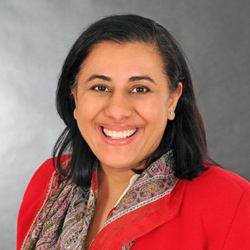This week’s blog has been written by Anjana Nathwani, a two time cancer survivor and Business Psychologist. She shares three key aspects to feel and live ‘success’ beyond cancer.
I was recently privileged to spend a day with Robert Holden and also a day long Happenista Retreat facilitated by Jenny Garrett. The days were within four weeks of each other and in the middle of two family bereavements and busy time with marking University assignments. Life felt challenging as I was moving ahead with my entrepreneurial projects and all of a sudden family and caring responsibilities took over.
The two events provided an opportunity to renew and reimagine life. Post my second cancer in 2014/2015, my life’s journey has been stimulating and the hunger to feel successful was always playing on my mind. Whilst reading Robert Holden’s Authentic Success I came across an enlightening paragraph:
“True success is about speed and time for reflecting, about pace and patience, about action and inspiration, about now and tomorrow.”
I reflected and asked the best friend within me what does success mean for me at this point in my life. The clarity came at the Happenista Retreat:
“I can apply the wisdom of ‘real’ experience and know that life can be vigorous, privileged and harmonious, and I can give myself permission to follow my dreams.”
My clients often ask me, is there a magical formula for appreciating and feeling harmonious with life. We all like a magical pill for instant solutions. Though, I have to say that it is a dynamic process and part of everyday life. One has to take care of three key aspects to feel and live ‘success’.
1. Physical Intelligence, how do we manage energy. What is our relationship with our body? Do you feel aliveness, is there a constant flow of energy and do you know when to take rest and what nutrition suits you. There is a dearth of literature, research and advice on nutrition, important to explore and know what suits your body and lifestyle.
I was fortunate to spend a day with Dr Andrew Weil and he said something wonderful to me: “trust your body’s intelligence and listen to what it requires.”
2. Emotional Intelligence, this is the relationship with one’s own heart. Emotions have always intrigued psychologists and in the past two decades, psychologists have intensively studied happiness and recently economists and neuroscientists have also joined the party. Psychologist Ed Diener’s research shows that the frequency of positive experiences is a much better predictor of happiness than is the intensity of positive experiences. It is the small stuff that creates lasting happiness. What are the trivia things that create joy? I was recently asked this question and my response was Andre Rieu’s music and watching roses bloom in my garden. In the quest of making big happy things happen, the small things are forgotten! It is important to know what the small joy giving moments are.
3. Resilience Intelligence, there is a lot of buzz on resilience and I have chosen to call it intelligence. We go through life and the memory of how we overcome tough times is subdued or forgotten. Martin Seligman, the Positive Psychology pioneer says that to ‘build resilience,’ talking to oneself is a good intervention. Challenging the low energy or down beat thinking with high energy and positive outlook can retrain the brain. During both my cancers, I have found three mental routines that helped to build and sustain resilience.
· Living with purpose and intent, giving my life a meaning and ensuring that each day has a success factor.
· Life loves me exercise as designed by Louise Hay and Robert Holden.
· Meditation/mindfulness, a daily 20-30 minute routine. Research in many spheres shows that the brain shifts focus and gets in touch high energy memories and this helps to deal with the stress.
Defining success beyond cancer sets a compass for well-being and life. How success is defined influences the mindset, and most importantly how the everyday journey of life feels. Very often the eagerness of reaching a destination or a goal takes over and the ‘soul fullness’ of life becomes sublime as destination addiction takes over. Inevitably the compass of success is very personal, though there are the core ingredients authenticity, purpose, growth and being present with life.
References:
Harvard Business Review Press Emotional Intelligence Series
Hay House Loveability Robert Holden
Hay House Success Intelligence Robert Holden
Hay House Life Loves Me Louise Hay and Robert Holden
Hutchinson IKIGAI Hector Garcia and Francesc Miralles
Anjana Nathwani believes that cancer is a pause that can be nurtured to find purpose in life. She is a Business Psychologist who mentors cancer patients and thrivers on careers and lifestyle and well being. She also specialises in employee engagement in relation to well being and inclusive cultures.
anjana.nathwani@athena-business.com













.jpeg)


